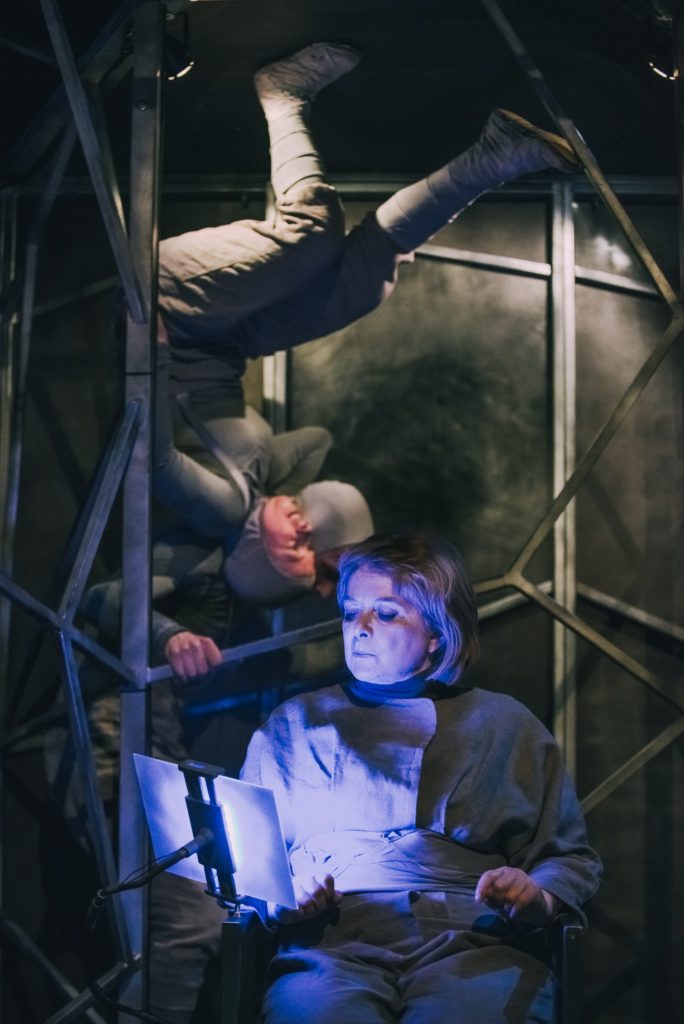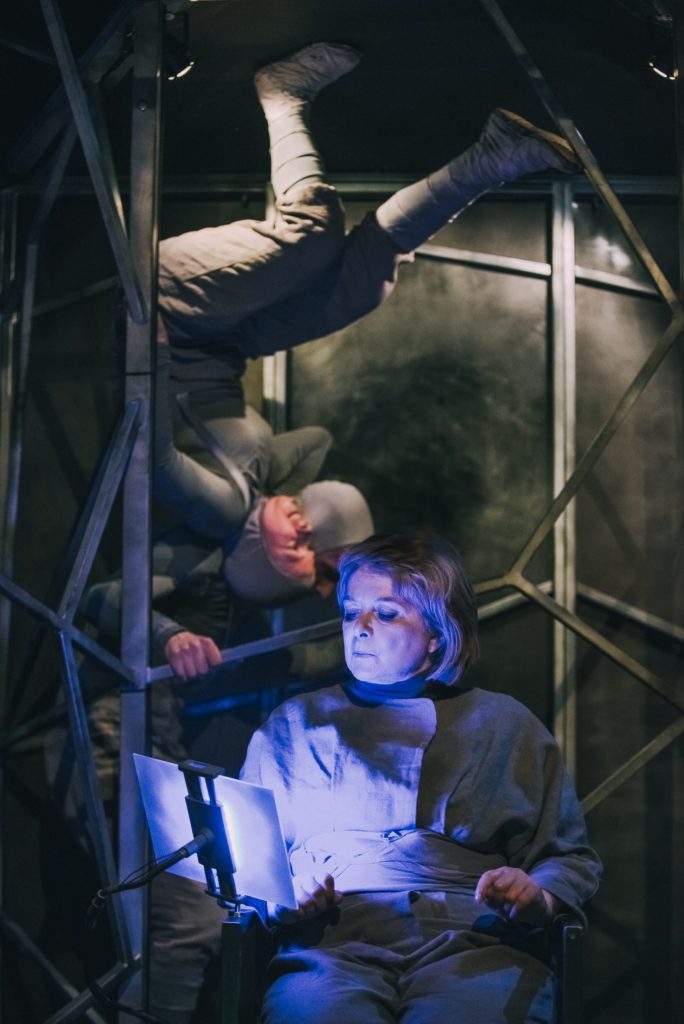
AS Covid-19 took its relentless grip, Juliet Forster kept finding her thoughts returning to E M Forster’s The Machine Stops, the stage adaptation she first directed for York Theatre Royal and Pilot Theatre in 2016.
“What was in my head was how we would be struck by it even more under Covid,” she says.
“Over this last year, I have thought about this piece many times as the world around us seemed to grow more and more like the incredible world that E M Forster imagined.
“And it’s even more striking today than it was at the time: things like human contact and human touch becoming something that’s almost taboo, things that didn’t seem relevant back in 2016 but are really, really striking and even more relevant now.”
This spring, The Machine Stops is starting up all over again, available to watch on a Theatre Royal webcast until April 5. Reactions so far have affirmed Juliet’s own feelings. “People are saying how eerily relevant it is,” she says.
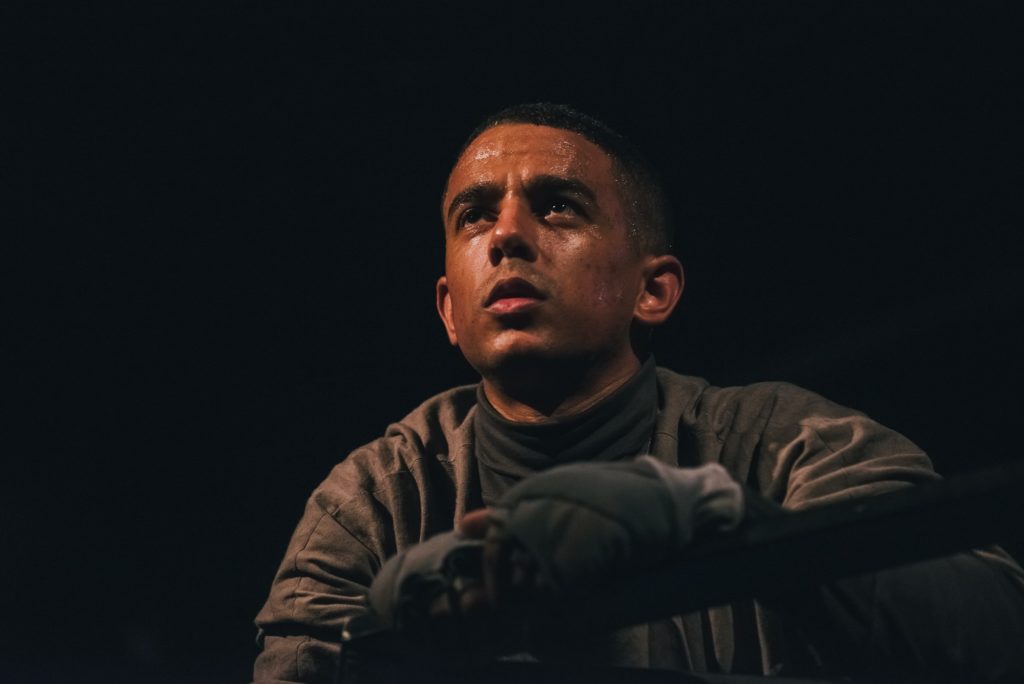
E M Forster’s 1909 short story is set in a futuristic, dystopian world where humans have retreated far underground and individuals live in isolation in “cells”, with all bodily and spiritual needs met by the omnipotent, global Machine.
“That’s what has felt very strange, particularly the lack of human contact: the things that we laughed at in 2016, but now we’re all having to try to avoid each other,” says Juliet.
Adapted by Neil Duffield, The Machine Stops premiered in the York Theatre Royal Studio in May and June 2016 at the outset of a three-venue run and was revived there in February 2017 before embarking on a national tour of nine venues.
Juliet’s stage premiere won the Stage Production of the Year in the 2016 Hutch Awards. “In the year when Phillip Breen directed the York Minster Mystery Plays on the grandest scale and York Theatre Royal re-opened with Bryony Lavery’s new adaptation of Evelyn Waugh’s Brideshead Revisited, it wasn’t the expected big hitters that left the deepest impression,” Hutchinson said in The Press, York.
“Instead, an obscure EM Forster sci-fi work, The Machine Stops, became a play for our times in the hands of the Theatre Royal associate director Juliet Forster and Pilot Theatre in the Theatre Royal Studio.
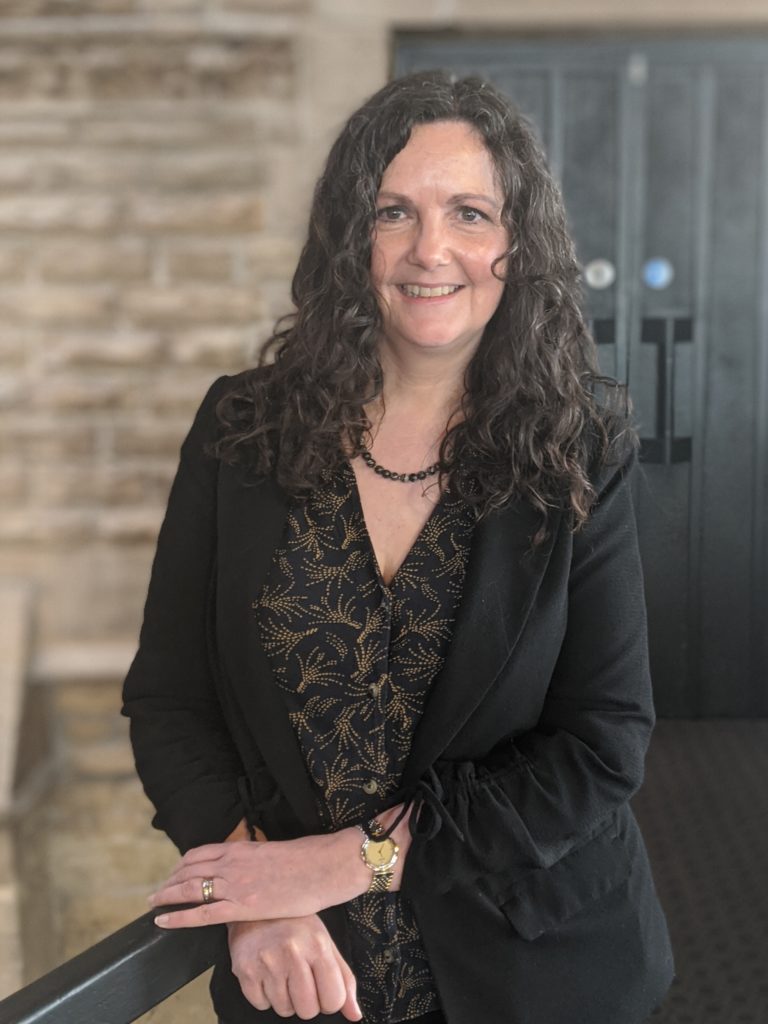
“Amid the stench of Brexit and Trump intolerance, here was a cautionary story of science friction and human heart told superbly artistically by a cast of four, writer Neil Duffield and electronic composers John Foxx and Benge with humanity’s worst and best attributes thrust against each other.”
Esther Richardson, Pilot Theatre’s artistic director, shares Juliet’s thoughts on The Machine Stops’ rising resonance: “When we produced The Machine Stops in 2016, it already seemed an eerily prescient piece of work. A story-world in which humans have become isolated from one another and living underground, communicating only through screens, offered an engaging space for reflection on perhaps the pitfalls of how our relationship with technology had been evolving,” she says.
“To be able to explore this in a live theatre space with an audience gathered together in person and with their technology switched off made it all the more dynamic a tale.
“It’s fantastic that, having spent the last year in different forms of isolation and on screens, we have the opportunity to share this great production, which will now sing with new meaning, meeting a new audience in a new context.”
The Machine Stops features a soundtrack composed by John Foxx, electronic music pioneer and founder of Ultravox, and analogue synth specialist Benge. The production was directed by Forster and designed by Rhys Jarman, with lighting design by Tom Smith and movement direction by Philippa Vafadari.
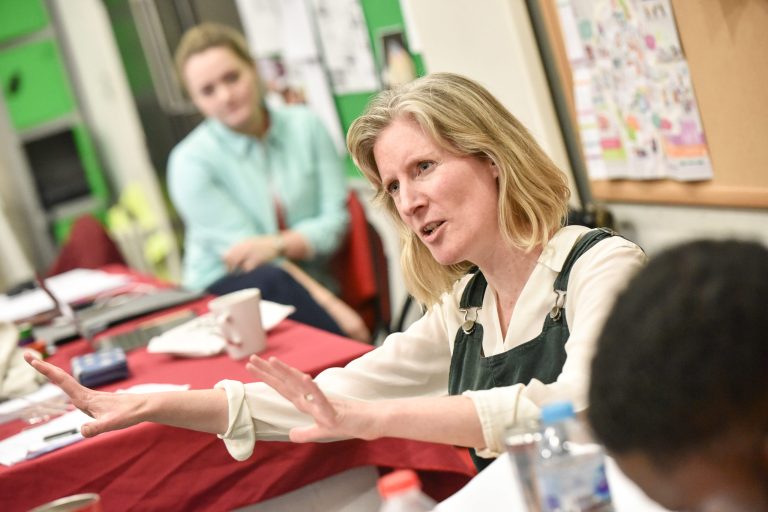
It stars Caroline Gruber as Vashti, Karl Queensborough as Kuno, Maria Gray as Machine/Attendant and Gareth Aled as Machine/Passenger.
Analysing the reasons why The Machine Stops transferred so convincingly to the stage, Juliet suggested in 2017: “When you use human beings to the height of their potential, theatre is at its most interesting; when you realise the incredible ability of human body; but at the same time, you can’t shoehorn that into a play. Here, though, to represent the Machine through movement, it absolutely suited it.
“It also helped that we had the finest soundtrack for a play in living memory, composed by John Foxx and Benge.”
That soundtrack went on to form much of the music on the John Foxx And The Maths album, The Machine, released in 2017 on the Metamatic Records label with artwork by Jonathan Barnbrook, the designer for David Bowie’s last two studio albums, 2013’s The Next Day and 2016’s Blackstar.
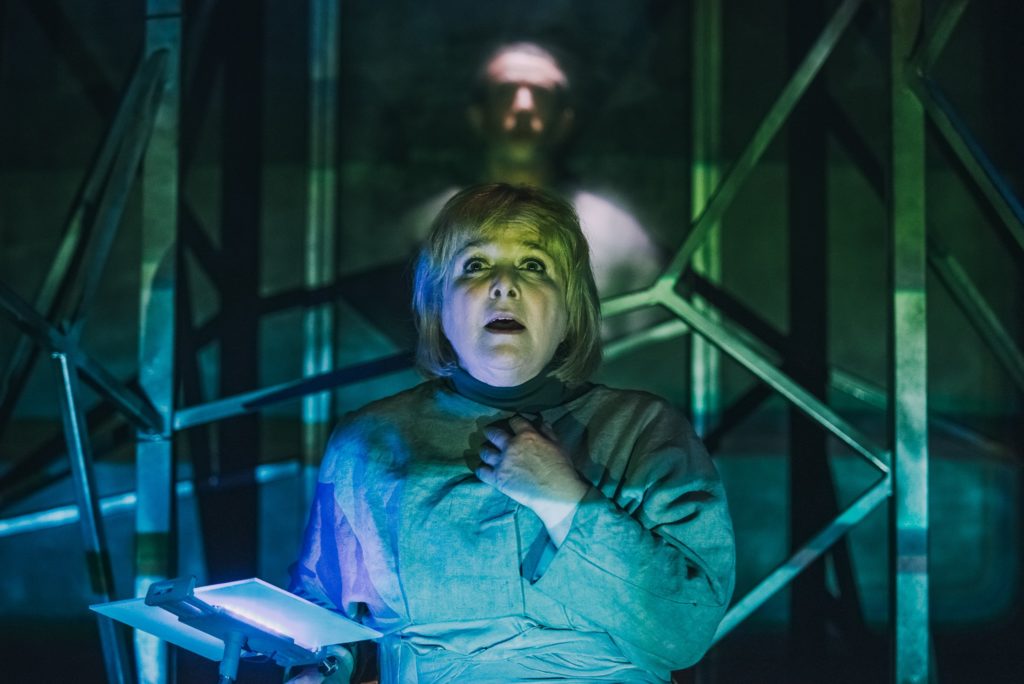
The filmed recording was edited by digital wiz Ben Pugh for its release online, with kind permission granted by the E M Forster estate. “We had taken a three-camera capture of the show in 2016 in the Theatre Royal Studio, when we were thinking of doing a streaming, but we didn’t have permission at the time, but now we do,” says Juliet.
“I asked Ben to do the editing because he’s fantastic at pulling digital theatre shows together, and it works really well on screen.”
The Machine Stops is available to view for free at https://www.youtube.com/watch?v=2PW5yk2G5pE, although York Theatre Royal and Pilot Theatre are asking for donations from viewers, with all contributions being split equally between them.
What was Charles Hutchinson’s verdict in May 2016?
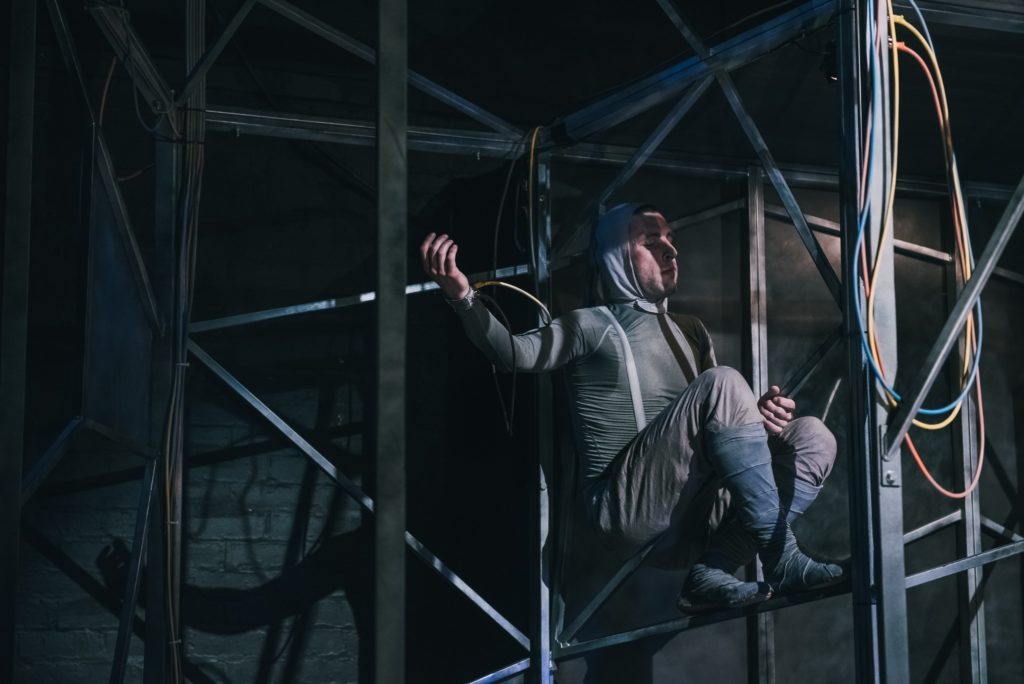
The Machine Stops, York Theatre Royal/Pilot Theatre, York Theatre Royal Studio
IN between those two pillars of early 20th century English literature, A Room With A View in 1908 and Howards End in 1910, E M Forster wrote a science-fiction short story, apparently in response to the outpourings of H G Wells.
It was pretty much ignored until being included in an anthology in the 1930s, but now it should take its rightful place alongside the prescient works of Aldous Huxley and George Orwell.
York Theatre Royal associate director Juliet Forster has cherished wishes to present it since 1999, and at last everything has fallen into place in a brilliant re-opening show in The Studio.
Forster and Forster makes for a perfect combination, assisted by her choice of writer, the experienced Neil Duffield; electronic musicians John Foxx and Benge in their first theatre commission, and designer Rhys Jarman, whose metallic climbing frame stage and hexagonal floor tiles could not be more fitting.
Centre stage is Vashti (Caroline Gruber), soft-boned, struggling to walk and wrapped in grey swaddling wraps, as she embraces her new, post-apocalyptic, virtual life run by The Machine, in the wake of humans being forced underground to self-contained cells where everything is brought to you: food, ambient music; lectures; overlapping messages.
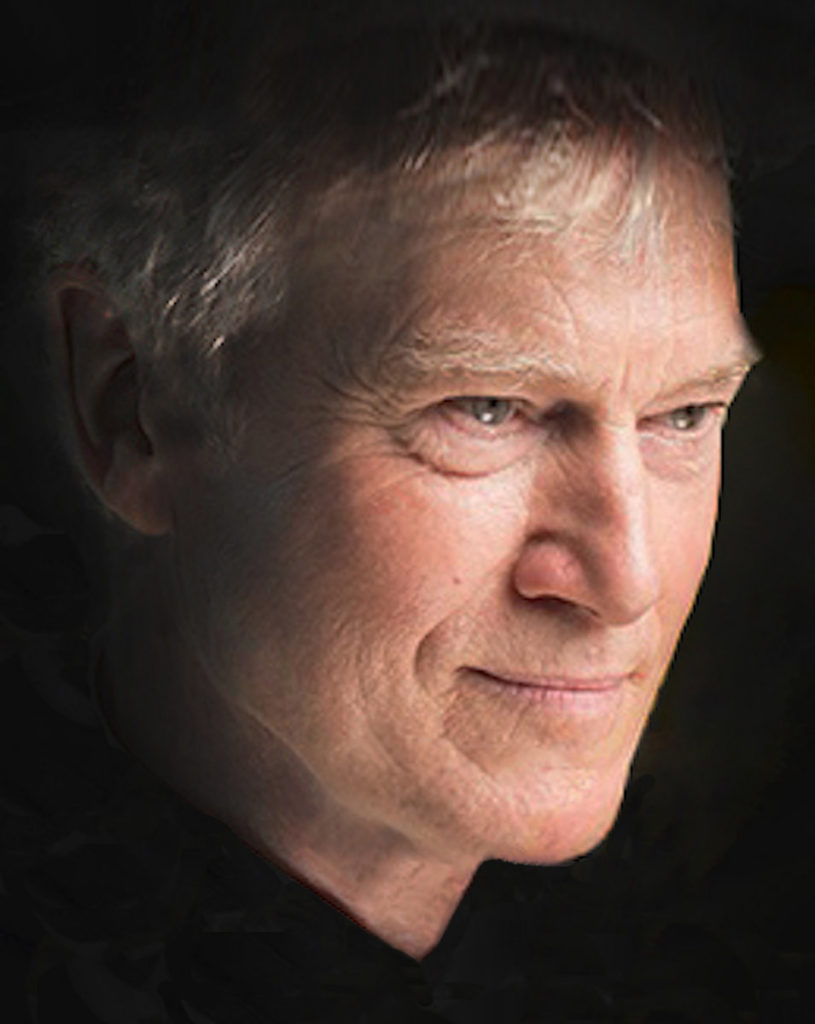
No windows; no natural day and night; no physical communication; all you need is at the touch of the screen beside you as technology rules in this dystopian regime. It is the age of the internet, conference calls and Skype, the age of isolation (and the teenage life), foretold so alarmingly accurately by Forster.
In the best decision by Juliet Forster and the writer, they have decided to represent the omnipresent Machine in human form, cogent cogs that slither and slide and twist and turn acrobatically, responding to Vashti’s every request, with an urgent physicality that has you worrying for the health and safety of Maria Gray and Gareth Aled.
Not that The Machine is merely compliant. Just as Winston Smith rebels in Orwell’s 1984, Vashti’s son Kuno (Karl Queensborough), on the other side of the underground world, craves breaking out into the old world above the artificial one, to breathe real air, see the sky, feel the sun on his face, but The Machine will do its utmost to prevent him.
Queensborough’s physical performance, as the desperate Kuno puts himself at risk, is even more remarkable than the gymnastic Machine double act, as he hurls himself around the frames.
Forster’s production has bags of tension, drama, intrigue, and plenty of humour too, especially when Gray and Aled transform into a plane attendant and passenger. Throughout, the Foxx and Benge soundtrack hits the right note, futuristic and mysterious, yet noble too when Kuno makes his move.
Nothing stops The Machine Stops: it is 90 minutes straight through, a story of science friction told superbly artistically with humanity’s worst and best attributes thrust against each other.
Review: Copyright of The Press, York

